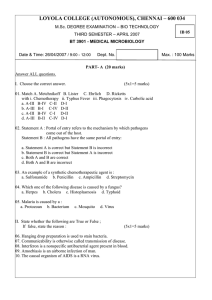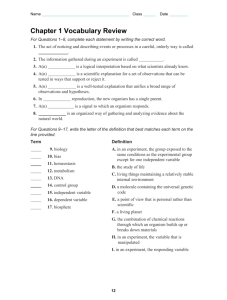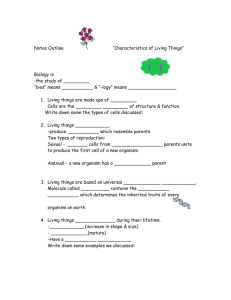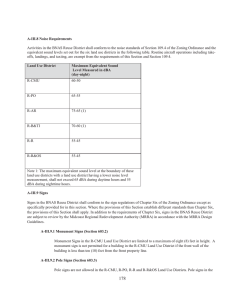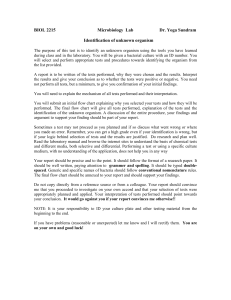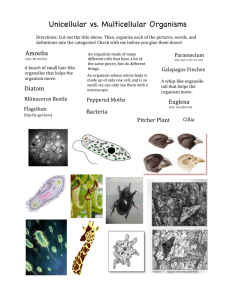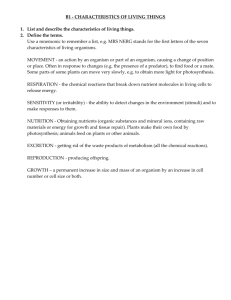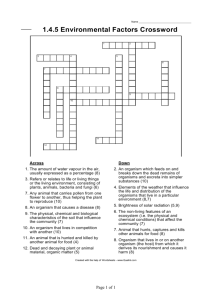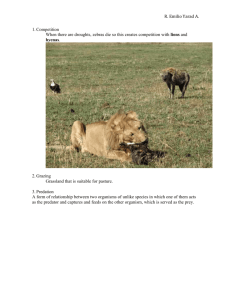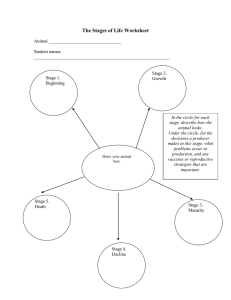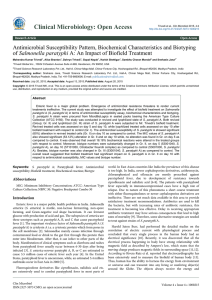Part A (20 marks)
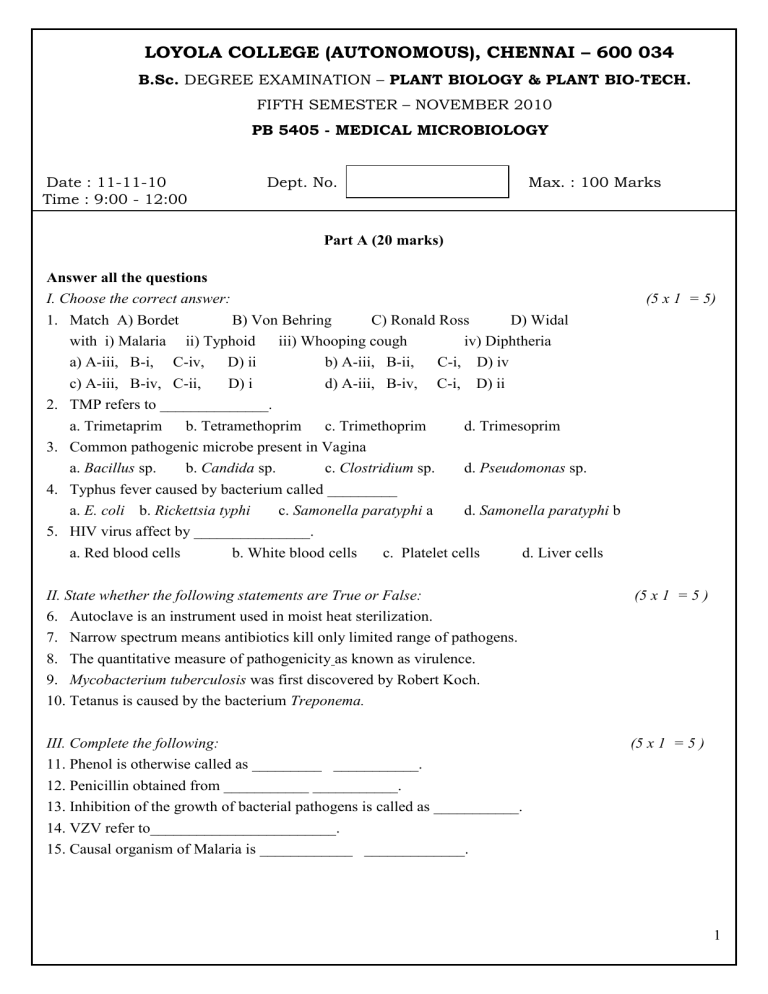
LOYOLA COLLEGE (AUTONOMOUS), CHENNAI – 600 034
B.Sc. DEGREE EXAMINATION – PLANT BIOLOGY & PLANT BIO-TECH.
FIFTH SEMESTER – NOVEMBER 2010
PB 5405 - MEDICAL MICROBIOLOGY
Date : 11-11-10
Time : 9:00 - 12:00
Dept. No. Max. : 100 Marks
Part A (20 marks)
Answer all the questions
I. Choose the correct answer:
1.
Match A) Bordet B) Von Behring C) Ronald Ross with i) Malaria ii) Typhoid iii) Whooping cough
(5 x 1 = 5)
D) Widal iv) Diphtheria a) A-iii, B-i, C-iv, D) ii c) A-iii, B-iv, C-ii, D) i
2.
TMP refers to ______________. b) A-iii, B-ii, C-i, D) iv d) A-iii, B-iv, C-i, D) ii a. Trimetaprim b. Tetramethoprim c. Trimethoprim d. Trimesoprim
3.
Common pathogenic microbe present in Vagina a. Bacillus sp. b. Candida sp. c. Clostridium sp. d. Pseudomonas sp.
4.
Typhus fever caused by bacterium called _________ a. E. coli b. Rickettsia typhi c. Samonella paratyphi a d. Samonella paratyphi b
5.
HIV virus affect by _______________. a. Red blood cells b. White blood cells c. Platelet cells d. Liver cells
II. State whether the following statements are True or False:
6.
Autoclave is an instrument used in moist heat sterilization.
(5 x 1 = 5 )
7.
Narrow spectrum means antibiotics kill only limited range of pathogens.
8.
The quantitative measure of pathogenicity as known as virulence.
9.
Mycobacterium tuberculosis was first discovered by Robert Koch.
10.
Tetanus is caused by the bacterium Treponema.
III. Complete the following:
11.
Phenol is otherwise called as _________ ___________.
(5 x 1 = 5 )
12.
Penicillin obtained from ___________ ___________.
13.
Inhibition of the growth of bacterial pathogens is called as ___________.
14.
VZV refer to________________________.
15.
Causal organism of Malaria is ____________ _____________.
1
IV. Answer the following in about 50 words:
16.
Mention the names of any two filters used in filtration.
17.
Define Antibiotics.
18.
What is microbiota?
19.
What do you mean by Opportunistic pathogen?
20.
mention any two dermatophytic fungi.
Part B
(5 x 1 = 5)
Answer the following each in about 350 words. Draw necessary diagrams:
(5 x 7= 35)
21.
a. Discuss the importance of radiation as physical method of microbial control. or b. Write about the importance of halogens and heavy metals in the control of microbes.
22.
a. Write about the source, mode of action and application of streptomycin. or b. Explain about mode of action of cephalosporins.
23.
a. Describe the general features of normal microbial flora of human body. or b. Discuss about the factors which influence infection.
24.
a. Write about the habit, structure and multiplication of Entamoeba histolytica.
or b. Write about the causative agent, treatment and vaccines of cholera.
25.
a. Write about the causal organism, symptoms and prevention of syphilis. or b. Describe the symptoms and treatment of Tetanus.
Part C
Answer any three of the following questions each in about 1200 words. Draw necessary diagrams:
(3 x 15 = 45)
26.
Write about the usefulness of high and low temperature in controlling microbes.
27.
Write about the mode of action and application of sulfonamides.
28.
Describe about any two antigen and antibody reactions.
29.
Discuss the morphology of the causal organism of tuberculosis. Write about its symptoms and treatment.
30.
Write about the mode of transmission, pathogenesis and prevention of AIDS.
**************
2
